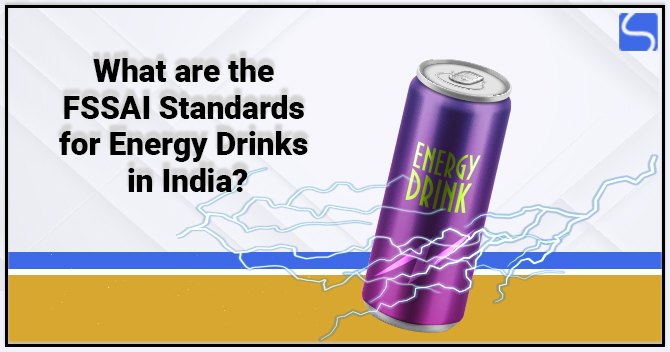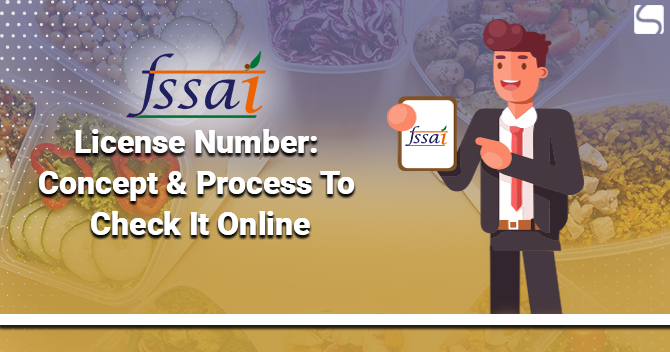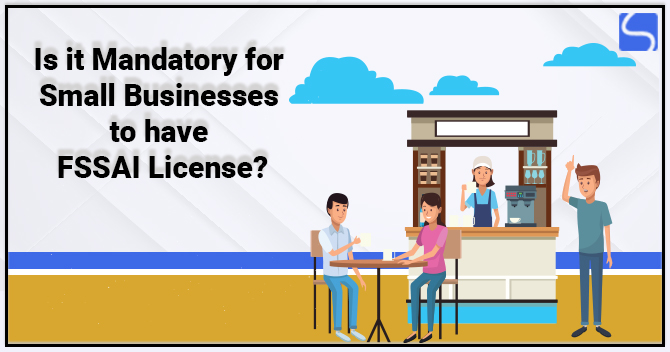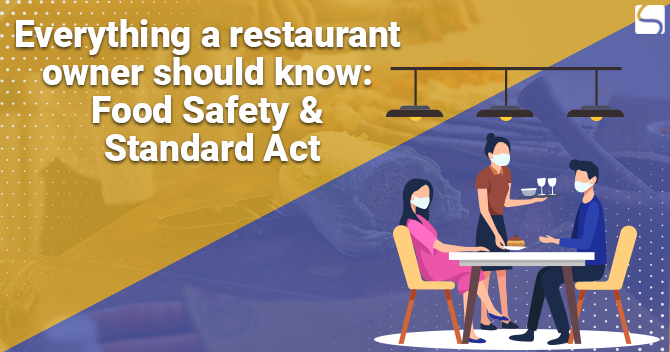FSSAI License for Energy Drinks in India: A Complete Guide

Karan Singh | Updated: Feb 10, 2021 | Category: FSSAI
FSSAI has set up a limit of caffeine used in energy drinks under the standards for Caffeinated Beverage. For those who want to be involved in the manufacturing of energy drink in India, it is compulsory to obtain FSSAI License for energy drinks. In today’s world, many people are consuming energy drinks because it re-energizes the body and eliminates fatigue & overtiredness, and it is becoming everyone’s favourite day by day, especially for the younger generation.
In this century, everyone in the world feels pressure and fatigue in their professional life and personal life, so having energy drinks will help them reduce the pressure and increase the clam level in mind to handle the issues of a different nature. Energy drinks are beverages that normally contain caffeine and artificial sweeteners. If anyone wishes to involve in the manufacturing sector of energy drinks in India, then it will be a very good idea because in India a large number of people uses energy drinks as a source of mental and physical energy but to start this business, you need to obtain FSSAI License for energy drinks and follow all the FSSAI standards for energy drinks in India. In this blog, we discuss the FSSAI Standards & FSSAI License for Energy Drinks in India.
Table of Contents
Is it mandatory to obtain FSSAI License for Energy Drinks in India?
As per the WHO (World Health Organization) reports, caffeine consumption beyond the limitations has several side effects such as a change in mood, behaviour, trembles and some other health-related problems in adults and youngsters. So, too much energy drinks consumption may result in some serious health problems such as kidney failure, high blood pressure, insomnia, dehydration, heart problems, etc.
To decrease or stabilize this problem, FSSAI has introduced some FSSAI Standards and FSSAI License for energy drinks in India. According to the new FSSAI standards, all the energy drinks companies must follow all the guidelines and standards given in the regulations and apply for FSSAI License to start this type of business in India. If any company found not following FSSAI standards, they will be penalized or maybe their license gets cancelled.
Also, Read: Is it Mandatory to take Food License for Schools and Colleges Canteen?
FSSAI Standards for Caffeinated Beverages in India
FSSAI has set up some standards and guidelines to regulate energy drinks after knowing that many famous energy drinks in India have used the caffeine as the ingredients more in amount than the suggested amount level daily.
Following are some FSSAI Standards for Energy Drinks that should be followed by all the energy drink companies:
- As per the FSSAI standards, the level of caffeine used in energy drinks should not be less than 145 mg/l and not above than 300mg/l. Apart from this, Saccharin Sodium should not exceed 100pm, and Sucralose should not be more than 300 ppm. The allowable limit for Neotame is 33ppm, and Methyl Ester should not exceed 770 ppm. Also, the parameters for other ingredients such as Inositol, Taurine, and vitamins added to energy drinks have also been set.
- If any energy drink company uses any type of fruit as the ingredients of the energy drink, it is compulsory to have a declaration about the fruit content on the beverage labels.
- Without obeying FSSAI standards and guidelines, you cannot obtain an FSSAI License for energy drinks in India.
- It is compulsory of having Food Supervisors who check the safety levels of the beverages. So, all the caffeinated beverages manufacturers in India must appoint a Food Supervisor.
- It is also compulsory to conduct an Audit and a Hazard Analysis after a periodic interval whether the drinks are in accordance with the FSSAI standards and rules or not.
What are the Microbiological Requirements in the FSSAI Standards?
The products are also required to follow the microbiological level of the FSSAI standards, and you can check the microbiological requirements below:
- Total Soluble Solids (m/m) should not exceed 10%.
- Fruit content (m/m):
- Lemon juice not more than 5 percent.
- Other fruits not more than 10 percent.
FSSAI License for Energy Drinks – Requirements concerning Packing and Labelling
Following are some requirements concerning labelling and packaging as prescribed by FSSAI to follow standards and obtain FSSAI License for energy drinks in India:
- Before issuing the FSSAI License for energy drinks, the FSSAI Department will confirm that your product agrees with packaging guidelines issued by the Department of FSSAI.
- According to the IS: 9845, the amount of colour in use should not exceed 60 mg/litre. Bottles of plastics are made up of Polyethylene Terephthalate and Polycarbonate, including blue tint, for instance, a five-litre bottle or more than that must be according to the Indian Standard IS-9833.
- All the manufacturers or sellers of energy drinks in India must make sure that the tag of energy on the product must get removed and in addition to this tag, they should use caffeinated beverages in order to sell products all over India.
- Under the FSSAI Standards, the requirements for labelling for such products in India are defined, and there is a compulsory condition that the manufacturers must go on making a declaration of the per day consumable quantity. Per day quantity means the consumption of a maximum amount of energy drinks per day.
- All products comprising Aspartame, Acesulfame, and other artificial sweeteners concerning special labelling provisions suggested under Regulations 2.4.5 – Food Safety and Standards Regulation of 2011 (Packaging and Labelling) must not get stored, sold, packed or distributed in containers in return.
- All the manufacturers of energy drinks should mention a cautious statement in the written form on the product’s label which tells that this product is not good for consumption for all the children below a specific age category and for pregnant women.
- FSSAI has set a boundary of maximum one level of RDA (Recommended Dietary Allowance) in serving on a regular basis concerning the usage of different vitamins such as Vitamin B6, Vitamin B3, Vitamin B12, Vitamin B2, and Vitamin B1. Several types of Amino Acids such as Taurine, Inositol, etc. can get used in the limited range for per day serving.
Conclusion
Food companies in India immersed in manufacturing and marketing with energy drinks import should follow the FSSAI Standards and guidelines. Also, it is compulsory to obtain FSSAI License for energy drinks in India. Implementation of FSSAI Standards would confirm the consumer’s safety. Our professional experts at Swarit Advisors would help you by getting FSSAI License for energy drinks in India.
Also, Read: What are the Tips to Avoid Delay in Food License?














